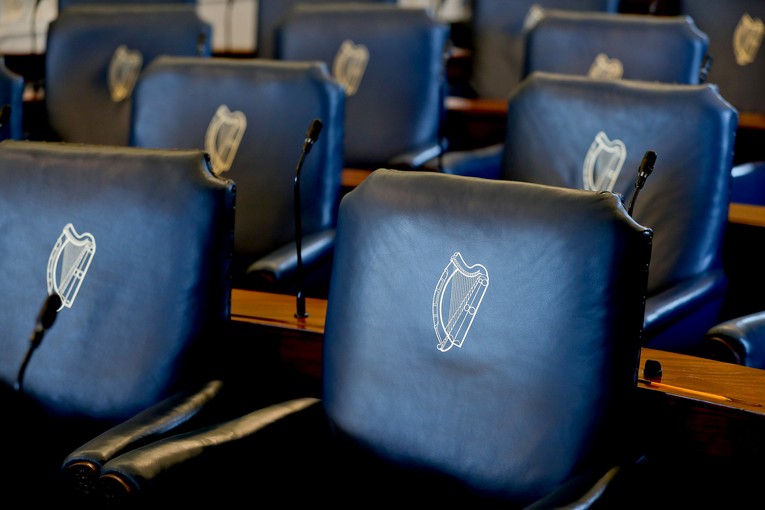 One of the most major overhauls of the betting industry in the Republic of Ireland could see some significant changes introduced – including the potential banning of bookmakers’ free bets.
One of the most major overhauls of the betting industry in the Republic of Ireland could see some significant changes introduced – including the potential banning of bookmakers’ free bets.
Ministers in the country have put together a new legislative framework that would allow for an independent regulator to be established, and they would be handed enhanced powers to govern both operators and punters.
Up until now, the Irish gambling market has been one of the most liberal in the Western world, with no formal regulator in place and laws that allowed both domestic and overseas brands a tremendous amount of leeway.
But no more now that the General Scheme of Gambling Regulation Bill has been passed into power.
What is the General Scheme of Gambling Regulation Bill?

To tighten up the legislation in a sector worth an estimated €10 billion, the Irish government have needed to establish a new regulatory code of standards by which the sector can be managed.
The General Scheme of Gambling Regulation Bill is that legislation, and this will govern how betting firms are allowed to operate and advertise their products and services, as well as detailing a more formal set of punitive measures for those who breach the code.
The move has come as part of a ‘clear commitment to establish a gambling regulator focused on public safety and well-being’, with the Minister for Law Reform – James Browne – admitting that the previous legislation was old hat and lacking in coherence.
“We all accept that the current legislative framework is fragmented, outdated, lacks a coherent licensing and regulatory approach, and is in need of significant reform,” he said.
“Now is the time to finally address this issue comprehensively, once and for all. I believe that the legislative underpinning of this new Authority will be essential to its success, and I am committed to taking this forward.”
The bill will underpin the work of a new body, the Gambling Regulatory Authority of Ireland, that has been established to oversee the legislative changes.
What is the Gambling Regulatory Authority of Ireland?

The next step is for the Gambling Regulation Bill to be passed into law. For that to happen, it will need to be signed off by the legislature of Ireland, the Oireachtas. They will discuss the proposed regulatory changes, and are expected to give them the green light in 2022.
The next phase will be the creation of an independent regulator to oversee the bill, and that has already been named as the Gambling Regulatory Authority of Ireland.
If the new legislation is passed, their sole responsibility will be to ensure it is upheld and acted upon – the authority will have a range of punitive measures to tackle betting firms that don’t adhere to the rules.
They will have the authority to withdraw licences from firms that don’t live up to their requirements, and for brands based in Ireland the new Gambling Regulatory Authority will have the power to close them down entirely.
As if that wasn’t enough, the Authority will also be granted powers that will enable them to impose fines of a whopping €20 million or 10% of the firm’s annual turnover – whichever is the largest number.
A social impact fund will also be created, and this would require licenced firms to pay a levy into the kitty that will be used to fund research and treatment into problem gambling behaviour.
Is This the End of Free Bets in Ireland?
 While the legislation has largely been drawn up to prevent gambling firms from misbehaving in the Irish market, there are other ramifications for players.
While the legislation has largely been drawn up to prevent gambling firms from misbehaving in the Irish market, there are other ramifications for players.
The most significant is that betting brands will be banned from offering free bets to their players should the Gambling Regulation Bill be passed. That includes as part of a new customer offer, as well as additional incentives for punters already signed up with the firm in question.
The idea is simple – free bets can be used as an enticement to attract new players, but because there is no ‘fee’ involved they can induce punters to then stake their own money on the outcome of their favourite sports.
By banning free bets, the message is one of transparency and clarity rather than trying to ‘hook’ new customers in.
No More VIPs
 In a similar vein to the banning of free bets, gambling firms in Ireland will also be prohibited from offering VIP programmes and similar inducements.
In a similar vein to the banning of free bets, gambling firms in Ireland will also be prohibited from offering VIP programmes and similar inducements.
The fear of these high roller schemes is that they encourage punters to bet more often and with bigger stakes – thus securing their invitation to a VIP club, where perks range from free bets (not for much longer) to dedicated account management.
There was some controversy in 2020 when the UK Gambling Commission stopped short banning VIP schemes outright – leading to some politicians describing the regulator as ‘unfit for purpose.’
Ireland has decided to tackle the matter head on, and you wonder if the UK market will follow suit in the near future.
No Cards On the Table

Following the lead of the UK sector, the new Irish regulator will ban the use of credit cards as a payment method at sports betting sites and online casinos.
The reasons for that are self-explanatory, with those more likely to experience problem gambling behaviour able to access money that they cannot really afford via their crediting institution.
By ensuring that bettors can only use debit cards, e-wallets, bank transfer and similar options, punters can therefore only deposit funds that are immediately available to them.
The move comes a full eight months since Flutter, the behemoth that owns Paddy Power, Betfair and others, voluntarily introduced their own credit card ban for customers of their brands.
Subtracting the Ads
 A number of bookmakers operating in Ireland had agreed to a whistle-to-whistle ban on advertising earlier this year.
A number of bookmakers operating in Ireland had agreed to a whistle-to-whistle ban on advertising earlier this year.
That basically meant that bookies would not show marketing messages during the adverts of televised sport – bringing an end to the almost incessant appearance of Ray Winstone during live football.
That will now be formalised by the Gambling Regulatory Authority of Ireland, who will issue a strict code of conduct governing the advertising of gambling products on TV, radio and online platforms.
That will include a mandated whistle-to-whistle ban, which will come into play for all live sport prior to the 9pm watershed. Ads will be prohibited for five minutes before, during and five minutes after the broadcast ends.
Account Management Tools
 It will now become mandatory for brands operating in Ireland to offer their customers an array of self-exclusion tools.
It will now become mandatory for brands operating in Ireland to offer their customers an array of self-exclusion tools.
Those will include time restrictions per session, voluntary deposit and stake limits, ‘timeouts’ and even the chance to sign up with a self-exclusion register.
Flutter, again somewhat ahead of the game, have introduced a loss limit of €500 for their customers under the age of 25.
“People under the age of 25 are likely to be experiencing a number of significant life changes, such as gaining independence for the first time and learning how to manage their finances,” said the firm’s chief executive, Conor Grant.
“We want anyone who decides to gamble when they come of age to get in the habit of setting sensible spending limits, and this measure is the latest we are introducing to help make this happen.”
The genesis behind the regulatory changes is to attempt to minimise the perils of problem gambling, and many of the changes detailed in the Gambling Regulation Bill are designed to achieve exactly that.
